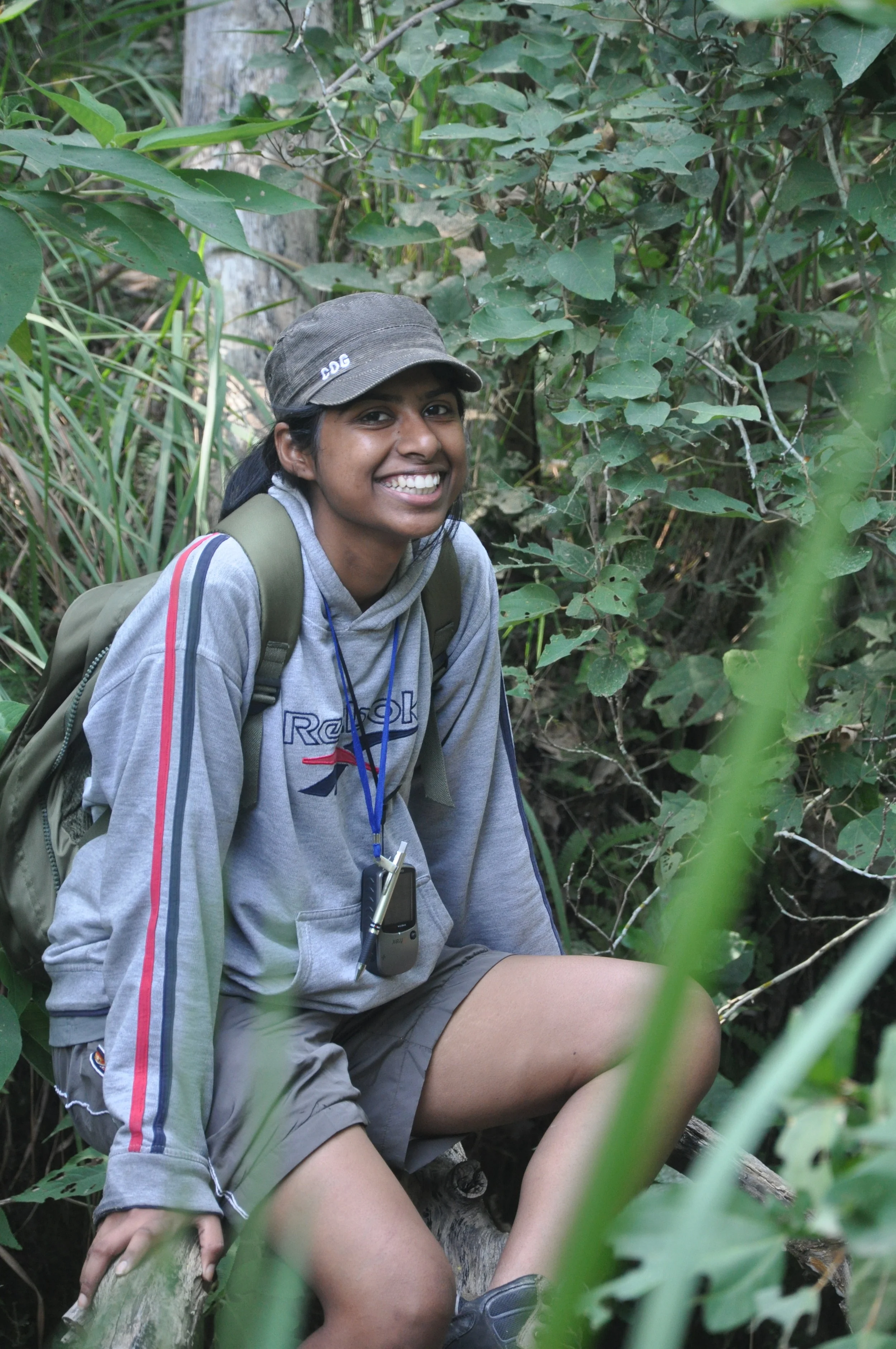Inlaks Ravi Sankaran (RS) Small Grantees 2019
This week we present to you the Inlaks Ravi Sankaran (RS) Small Grantees of 2019, Adreeja Chatterjee, Anvita Dulluri and Krishna Pavan Komanduri.
Adreeja Chatterjee
Coming from a small beautiful place like Siliguri, I was lucky to have spent most of my time surrounded by nature. Since a young age, I have enjoyed outdoor camping, hiking and trekking with a special interest in elephants! I have grown up knowing that I want to work and protect wildlife.
My interest in marine sciences developed while I was studying for my bachelors degree. Since then I have been working towards becoming a researcher in the field of marine biology. Having spent two years in the Andaman Islands during my Masters course at Pondicherry University, I realised there was a lot of scope for research on the islands. Currently I’m working on a small project focused on fish landing sites of the guitarfish. I am collecting data and conducting interviews with fishermen to understand the threats, if any to the guitarfish from the fisheries industry as well as their value in markets.
Anvita Dulluri
I am a legal researcher with a keen interest in environmental law. I have an undergraduate degree from the National Law School of India University, Bangalore. As a law student, my interest in issues of environmental governance prompted me to reflect on the human-environmental relationship that underlies most conflicts of resource-use and sharing. After graduating from law school, I chose to pursue my masters under the international environmental sciences programme at the University of Cologne, Germany, as I was particularly drawn to its interdisciplinary model of research. It was here that secured a DAAD scholarship.
My research and writing on renewable energy and biodiversity reflect an attempt to combine modes of interdisciplinary research to critically analyse environmental law and policy. Currently, I am a research intern at Dakshin Foundation, a non-governmental organization on coastal conservation in Bangalore, contributing to their programmes on “Biodiversity and Resource Monitoring” and “Communities and Resource Governance”.
With the Inlaks Ravi Sankaran Small Grant, I intend to initiate my project on coastal adaptation to climate change, focusing on the ambivalent interface between top-down models of climate adaptation and the science of ecological resilience. The project proposes to undertake an empirical study involving climate adaptation projects implemented on the coasts of Orissa, in areas most vulnerable to climate change.
Focusing on the impact of such projects on the overall socio-ecological resilience of the ecosystem, the project offers a critique of short-sighted environmental engineering measures that find place under adaptation planning within the narrow paradigm of disaster relief and management. It seeks to affirm the urgency of foregrounding biodiversity and local participation in ongoing efforts of the Indian Government to mainstream climate adaptation into the country’s developmental agenda. In addition to climate change law and policy, I have a wide range of research interests converging on environmental humanities, cultural ecology and history.
Krishna Pavan Komanduri
We’re currently in the midst of the sixth mass extinction and amphibians are the only major group that is at immediate risk globally. The synergy between several factors is what’s triggering this extinction, and climatic variability is one among them. It is quite apparent that temperatures are on the rise globally and tropical amphibians which are known to have a very narrow range of thermal tolerance makes them particularly vulnerable to the slightest of variations in ambient temperatures. Whilst ambient thermal variation may be one of several critical factors triggering the ongoing mass extinction, habitat alteration is one of the many drivers that engenders thermal variation, compromising the breeding, development and feeding abilities of amphibians.
My interest in studying the effects of land-use change began during my masters’ dissertation where I studied the impact caused by coffee plantations on frog communities. Prior to receiving the Inlaks Ravi Sankaran small-grant, I worked on a project studying the prevalence of Chytrid fungus in stream amphibian communities.
Currently my research focuses on understanding the impact caused by land-use change into plantations on the microhabitat selection and body temperature of frogs. This would aid in designing better management strategies to conserve amphibians in altered habitats.








